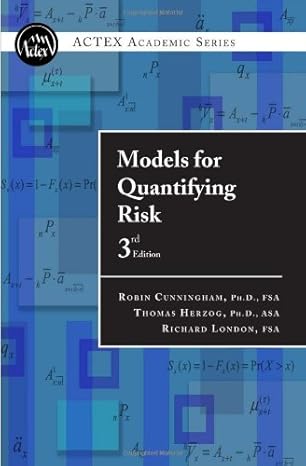Answered step by step
Verified Expert Solution
Question
1 Approved Answer
Leveraging Social Media for Local Charitable Organizations: Enhancing Digital Identity and ImpactAbout the assignmentThis project aims to provide students with practical experience in applying their
Leveraging Social Media for Local Charitable Organizations: Enhancing Digital Identity and ImpactAbout the assignmentThis project aims to provide students with practical experience in applying their knowledge of digital identity and social media strategies to make a positive impact on their local community. It encourages critical thinking and creativity while demonstrating the realworld significance of these concepts.Assignment objectivesThe objective of this undergraduate final project is to empower students to apply their knowledge of digital identity and social media strategies to support local charitable organizations, nonprofits, or public services in their community. Students will explore how effective use of social media platforms can enhance the visibility, engagement, and impact of these organizations.Duration of the actual campaignThe campaign should run days. That means you should post and interact in the campaign regularly for days.What does ad hoc mean?The assignment is adhoc, which is a Latin term that means "for this" or "for this purpose." In our use of the word, this means it is a onetime campaign for the purpose of this class and does not require anything more than you doing the work no need to contact the organization. Consider it a surprise gift that you're helping out an organization to make the Tampa Bay area a better place!Project descriptionPhase : Research and SelectionResearch Local Charitable Organizations Tampa Bay Area or something larger that is also good for society: Students will research and identify a set of local charitable organizations in their community. Each student will choose one organization to focus on based on alignment with their interests and values. As an example of something larger that is also good for society, how about a campaign to get more then young peers to vote & they document it in social media and each of those young peers also gets young peers to vote & they document it in social media so exponential growth.Digital Identity Assessment: Students will assess the current digital identity of their chosen organization. This includes evaluating their presence on various social media platforms, website quality, branding consistency, engagement levels, and overall online reputation.Phase : Strategy DevelopmentSocial Media Audit: Students will conduct a comprehensive audit of the organization's existing social media profiles. They will analyze the type of content being shared, the frequency of posts, audience engagement, and the organization's messaging and tone. Also, on what social media platforms do they have a presence?Target Audience Analysis: Students will define the target audience for their chosen organization. They will create personas representing the typical supporters and donors, considering demographics, interests, online behavior, and motivations. Personas are made up people who would be a good example of the people the organization would target for whatever means. For instance, there may be donors they are targeting, people who need their services, volunteers, etc.Digital Identity Enhancement Plan: Based on their research and analysis, students will create a strategic plan to enhance the organization's digital identity. This plan will include recommendations for improving social media content, engagement tactics, branding consistency, and platforms to focus onPhase : Implementation and MonitoringContent Creation: Students will create a series of engaging and relevant social media content for the organization. This could include posts, images, videos, infographics, and stories tailored to the target audience.Platform Engagement: Students will actively manage and engage with the organization's social media profiles. They will post and tag the organization in their posts. They will respond to comments, messages, and interact with other relevant accounts in order to foster a sense of community and increase visibility.Measurement and Analysis: Students will track key performance metrics such as follower growth, engagement rates, reach, and website traffic. They will analyze the impact of their strategies and make adjustments based on the data.Phase : Final Assessment and PresentationImpact Evaluation: Students will evaluate the effectiveness of their strategies in enhancing the organization's digital identity and online impact. They will reflect on successes, challenges, and lessons learned during the project. Note: they may find there wasn't a lot of impact, but should search for ways to report any impact or reasons why impacts were difficult.Final Report: Each student will create a comprehensive final report detailing their research, strategy development, implementation process, and outcomes. The report should include datadriven insights and visual representations of the organization's digital presence before and after the project. The written report should be structured by phases. Make sure to include screenshots ofd posts, interactions, artifacts you created to post such as an online flyer or a promotional meme or a short video clipFinal Presentation: The presentation will take the form of a visual graphic created in Canva, Piktochart, or Adobe Express to highlight what the project was and what impact it had. This graphicposter will be uploaded into a class discussion board for review by classmates. It should be a quick look into your project. This presentation should highlight the organization's journey, the strategies employed, and the positive changes observed. It's also an opportunity for students to share their insights into the role of digital identity in supporting local charitable organizations.Grading CriteriaThis project is worth points for the report, of which are divided evenly between each of the phases.Phase : pointsPhase : pointsPhase : pointsPhase : pointsOverall thoroughness, cohesion, and clarity of the entire report: pointsPosting to the discussion board and commenting on others: points located in another assignment can you please form a report for it
Step by Step Solution
There are 3 Steps involved in it
Step: 1

Get Instant Access to Expert-Tailored Solutions
See step-by-step solutions with expert insights and AI powered tools for academic success
Step: 2

Step: 3

Ace Your Homework with AI
Get the answers you need in no time with our AI-driven, step-by-step assistance
Get Started


